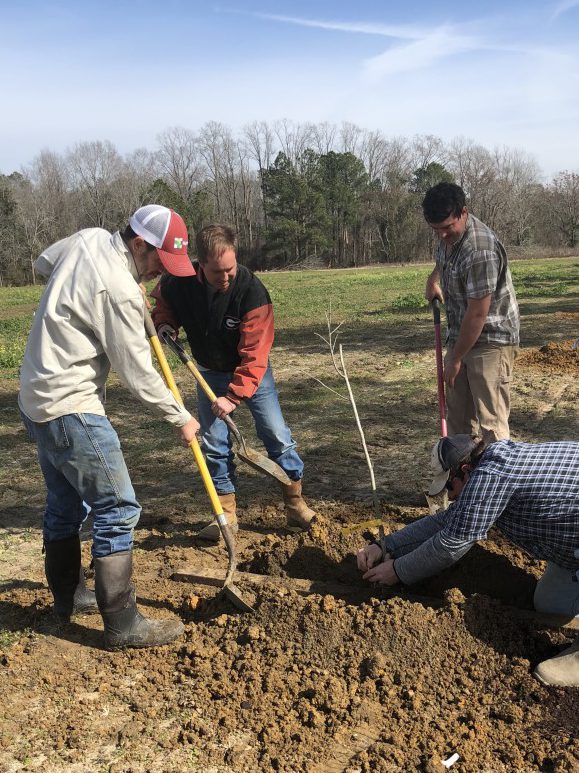
University of Georgia Cooperative Extension is conducting pecan research at the UGA Vidalia Onion and Vegetable Research Center (VOVRC) in Toombs County.
Pecan trees were planted earlier this year and will be the basis for long-term research plots and short-term demonstration plots.
Research will focus on low-input pecan varieties that can successfully grow in Georgia without incidence of pecan scab. Plots will also serve as hosts for field days for Extension agents and producers.
Andrew Sawyer, Southeast District Area Pecan Agent, initiated the project last year with a grant from the Georgia Pecan Commission.
Sawyer compiled a team of specialists, county Extension agents, local growers and growers association representatives to make sure everyone had a hand in the process.
“This is the essence of true Extension work,” he said of the team effort that helped get more than 140 pecan trees planted in February this year.
The team planted various low-input cultivars including McMillan, Lakota, Avalon, Excel, Eclipse and Kanza. Sumner, an older variety, was also planted to be used in comparison, due to its susceptibility to pecan scab fungus and popularity among growers in Southeast Georgia. Many seedling trees were also planted which will be grafted with newer varieties in a few years.
Sawyer and his team will highlight differing management tactics, including fertilizer, pruning, irrigation and spacing regiments and their potential impact on growth and yield.
“Pruning is a very important cultural practice that is easier to demonstrate than discuss,” explained Sawyer, “so this site will be good for demonstrating the right way to prune pecans within their first four years.”









